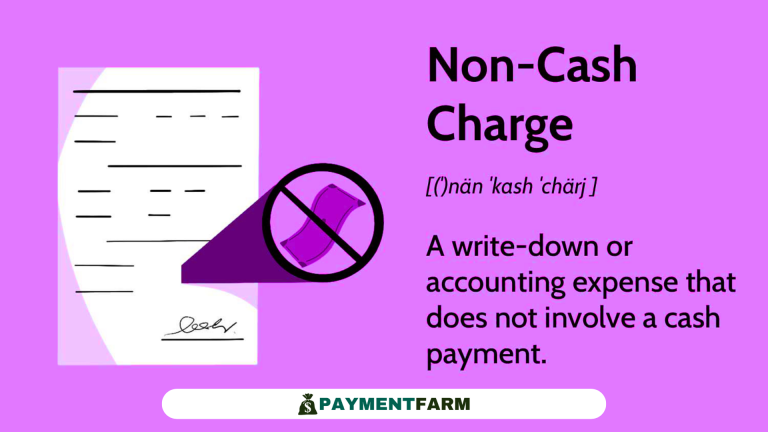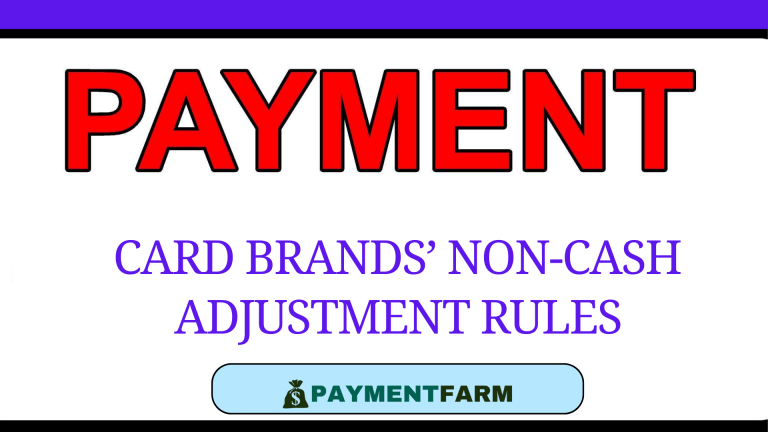In the ever-changing payment processing environment, Non Cash adjustment fees have emerged as a central point of focus for businesses that want to manage increasing costs. In the UK, these fees, which are often linked to credit card payments, have specific UK regulations and requirements that businesses must adhere to. This article delves into the legality, rules, and best practices surrounding non-cash adjustments and related surcharge mechanisms.

What Are Non Cash Adjustments?
A non-cash adjustment is a fee added by businesses to transactions made through credit or debit cards. The aim of the fees is to offset merchant service fees associated with card payments. Most businesses implement this in combination with a cash discount program, which rewards customers for paying in cash, thus saving on processing payments.
UK Laws on Non-Cash Adjustment Fees
The UK has very strict laws regarding surcharges and non cash adjustment fees. Since 2018, UK laws have prohibited businesses from levying high surcharge fees on card payments. However, legal non-cash adjustments are still feasible if they are transparent and in accordance with the rules.
Businesses must:
- Clearly state any non-cash adjustment fees.
- Signage and communication must be in line with the requirements of non-cash adjustment signage UK.
- Avoid going beyond reasonable limits, adhering to surcharge percentage rules UK.
How non-cash fees work UK?
Non-cash fees are fees added to card transactions to recover merchant service charges. The price advertised is the amount paid by card, while cash payers get a discount.
To comply with UK law, businesses must:
- Clearly display fees with proper signage.
- Follow the rules of card brands on non-cash adjustments.
- Make sure fees are reasonable and transparent.
- This system encourages cash payments, helps offset costs, and is often implemented using advanced POS terminals for seamless integration.
Card Brands’ Non-Cash Adjustment Rules
Major card networks such as Visa and Mastercard have specific requirements for non-cash adjustment credit card UK programs. These range from the amount of the fee, to the fact that the transaction must be transparent, and that UK cash discount compliance standards should be met.

- Dual Pricing Method UK and POS Integration: Cash discount programs can be easily introduced using the dual pricing method UK. This system will expose a customer to two prices. This includes a cash price which is relatively low and a relatively higher card payment price including the non-cash adjustment. To ensure easy application, businesses can use the advanced features of POS terminals with a cash discount UK to make POS integration of non-cash adjustments UK.
- Small businesses’ considerations: Manage cost for small businesses of payments. Utilize a merchant cash discount system or even apply the UK surcharge fee calculator to calculate reasonable charges. Education on a merchant account non-cash adjustment guide would be required so as to avoid penalties.
- Consumer Reaction and Transparency: Consumer acceptance of non-cash adjustments requires transparency. Proper communication and transparent disclosure regarding the non-cash fees work in UK helps in building confidence. Provisions for options such as cash discounts along with posting of clear notices at the time of sale would be of essence.
- Cost Recovery and Compliance: While recovering the payment processing fees is a top priority, businesses need to adapt their practices to conform to UK credit card surcharge update 2024 and other changing regulations. Surcharge fee UK laws require merchants to remain transparent and avoid deceptive practices and thus ensure compliance with the legal frameworks.
- Non-cash adjustment program legality: The legality of non-cash adjustment programs in the UK has to do with transparency and complying with the regulations that exist already. Businesses are allowed to apply such programs, but must be in line with some specific UK regulations for their legality and fairness.
Key considerations:
- Disclosure Requirements: Business must clearly inform customers regarding the non-cash adjustment fees before the completion of transactions. Proper signage and point-of-sale notices that conform to the non-cash adjustment signage requirements UK must be displayed.
- Reasonable Fee Levels: The surcharge or adjustment must not exceed reasonable limits as defined by UK laws and surcharge percentage rules UK.
- Transparency and Fair Practices: Dual pricing method UK, that reflects both cash and card prices is the most preferred way to keep transparency. Card Brand Rules Businesses should also adhere to rules outlined by major card networks for staying abreast of card brands’ rules on non-cash adjustment.
Cash discount vs non-cash adjustment
- Cash Discount: The discount provided for cash payments. The advertised price is cash, and card users are charged a little extra. It treats customers as being rewarded for the use of cash and fits the UK cash discount compliance rules well.
- Non-Cash Adjustment: Adds a fee to card payments to offset processing costs. The price advertised would be the card amount, but there will be a discount if they pay in cash. The non-cash adjustment UK laws require proper disclosure and display on signs.
Conclusion
Non-cash adjustment fees are fees added to card payments to recover merchant service costs, where a cash payer enjoys a discount. UK laws strictly require transparency with clear signage and their rules among which is the Signage requirements UK on non-cash adjustments and rules on surcharge percentage UK. The businesses must ensure that its fees are reasonable and must not breach the rules that apply through card brands, using methods like dual pricing method UK for equality. The implementation of compliant POS terminals through appropriate communication can help businesses incur offsetting costs in accordance with the law and because of public trust.
Faqs
Are non-cash adjustments legal in the UK?
Yes, as long as they comply with the requirements of transparency, reasonable fee limits, and disclosure rules as outlined in UK legislation and card brand guidelines, non-cash adjustments are legal in the UK.
How do non-cash adjustments benefit businesses?
Non-cash adjustments help businesses recover card processing costs, incentivize cash payments, and reduce overall payment processing fees.
What is dual pricing, and how does it work?
Dual pricing involves two prices: one is a lower price for cash payment and the other is a higher price for card payment. It ensures transparency so that customers can choose their preferred mode of payment.
Is there a cap on the amount charged as a non-cash adjustment?
Yes, this amount charged must be within reason and should not cost the business more than its cost to process the card payment. This is covered under UK laws and percentage on surcharge rules.
How do businesses explain non-cash adjustment fees to consumers?
Businesses need to make adequate signage at the point of sale available, either on the receipt, or online to clearly tell the consumer the fee from the non-cash adjustments. Transparency builds consumer confidence.
What are the UK laws governing non-cash adjustments?
Since 2018, UK laws prohibit excessive surcharges on card payments. Non-cash adjustments are permissible if fees are transparent, reasonable, and comply with specific legal requirements, such as signage and disclosure rules.
What are the differences between cash discounts and non-cash adjustments?
- Cash Discount: The advertised price is for cash payments, and card users pay an additional fee.
- Non-Cash Adjustment: The advertised price includes card payment fees, with cash customers receiving a discount. Both methods must comply with UK transparency laws.
How do card brands regulate non-cash adjustment programs?
Card networks like Visa and Mastercard have rules on fee limits, transparency, and compliance. Businesses must follow these regulations to maintain their ability to process card payments.
What tools can businesses use to implement non-cash adjustments?
Advanced POS systems with dual pricing capabilities, compliance-focused software, and signage tailored to UK regulations can help businesses integrate non-cash adjustment programs effectively.
